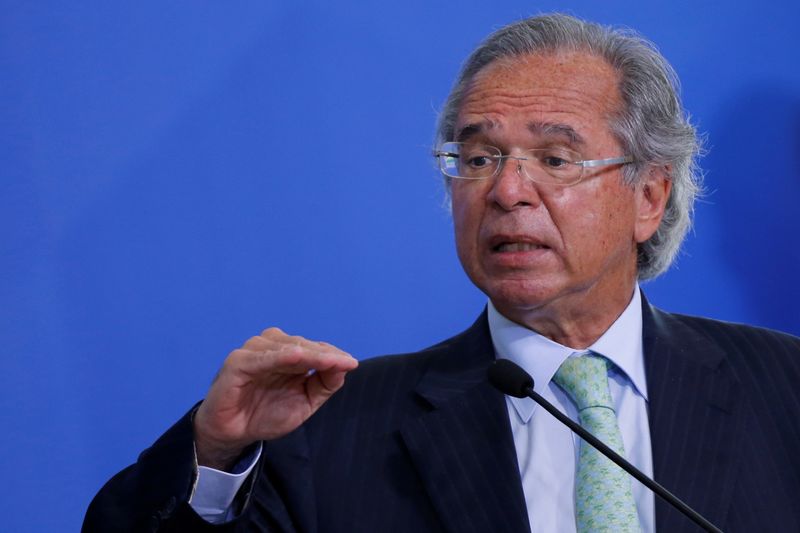By Jamie McGeever and Gabriel Ponte
BRASILIA (Reuters) -Brazil’s government will need at least 11 billion reais ($2.2 billion) in extra cash to extend emergency cash transfers to the poor for two or three months until the COVID-19 outbreak is under control, Economy Minister Paulo Guedes said on Tuesday.
The monthly cost of the program is around 9 billion reais, so a two-month extension would cost 18 billion reais, Guedes said, adding that the government already has an unspent 7 billion left over from the previous package that was revived in April.
President Jair Bolsonaro is deciding whether the aid will be extended for two or three months, Guedes said. This will depend on how the pandemic evolves, but even three months should not cause ripples in financial markets, Guedes said.
“I wouldn’t expect any noise from the market … if you spend 11 or 12 billion more. That’s reasonable (in view of the pandemic),” Guedes said.
The additional cash would come from ‘extraordinary credits,’ emergency spending from a parallel budget to combat COVID-19 that is not subject to the government’s spending cap rules.
Solid economic growth and record tax receipts this year have improved Brazil’s fiscal position. The government’s primary budget deficit this year could fall below 3% of gross domestic product, so an extra 11 billion reais spending has to be seen in that context, Guedes said.
Guedes said on Tuesday that a strengthened ‘Bolsa Familia’ program, a popular and cheaper nationwide welfare benefit, will come into force once the pandemic-related aid ends.
He stressed that the government will not go “wild” on spending ahead of the 2022 presidential election. “We will never do it. The only way we could get wild, if it is to privatize faster and faster,” he said.
Guedes expressed confidence that tax and administrative reform bills will be approved by Congress in the next three or four months.
($1 = 5.03 reais)
(Reporting by Jamie McGeever and Gabriel Ponte; editing by Jonathan Oatis)





















